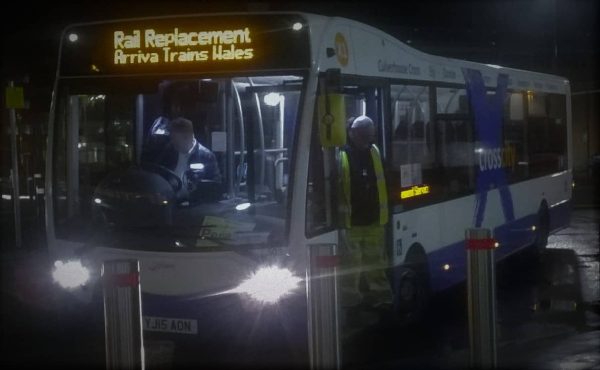There are approximately 5,000,000 km of paved roads in the European Union, of which around 65,100 km are motorways. The gross investment spending in road infrastructure in the wider 34 European countries in 2009 was over €82 billion[1] (at current prices and exchange rates). Whilst this represents a tremendous asset, there are numerous challenges; road construction and maintenance budgets are shrinking, traffic volumes are increasing, much of the transport network is old and in some cases near the end of its operational life and there remain requirements to increase safety and minimise network availability.
Added to this are requirements to decrease the carbon footprint of the infrastructure and add new functionality such as powering electric vehicles, harvest renewable energy and potentially adapt to connected and autonomous vehicles.
Recognising these challenges, the Forum of European Highway Research Laboratories initiated the Forever Open Road programme in 2010 to provide a vision for roads in the 21st Century. The Forever Open Road Programme works towards developing a next generation of advanced and affordable roads that can be adopted both for maintaining the existing network and building new roads. This will enable future road operators to adopt emerging innovation, whilst overcoming the increasing constraints on capacity, sustainability, reliability and integration. Maple Consulting has been managing the programme on behalf of FEHRL and its institutes since 2016.
There are 3 elements to the Forever Open Road programme; the Resilient Road, which focusses on ensuring service levels are maintained even under extreme weather conditions, the Automated Road which focusses on the integration of ICT and the Adaptable Road which focusses on ways to allow road operators to respond in a flexible manner the changes in road user demands and which ultimately integrates the automated and resilient elements.
Roadmaps for each of the three elements were published in 2013 which identified research and innovation topics with milestones set for 2015, 2020 and 2025 focussing on development of single technologies, sub-system proving and implementation on a system level respectively.
Recognising that the 2015 milestone had been passed, an update of the roadmaps was undertaken to reflect on progress made against milestone 1, ensure that the innovation topics remained relevant, adding or refocussing as required. A further area of focus was to move beyond the concepts identified in the first document, looking towards research, demonstration and implementation projects that represent the building blocks of the Adaptable Road.
The innovation themes identified for this version of the roadmap are as follows:
Future Proof Manufacturing, Design and Construction – considering innovations such as prefabricated roads manufactured in factory conditions, automated construction and report, 3D printing techniques and easy replacement of pavement surfaces.
Advanced Sustainable Materials Design, Construction and Implementation Processes – developing low rolling resistance roads, carbon absorbing pavements and low CO2 construction materials.
Flood, Snow and Ice-Free Pavements, Tunnels and Bridges – development of reservoir pavements to slow run-off and temperature-controlled pavements to reduce icing of surfaces and effects of extreme heat.
Powering Vehicles – in-built power systems and the capture of renewable energy for powering electric vehicles and road infrastructure
Durable and Integrated Pavements, Bridges, Tunnels and Structures – development of self-cleaning and self-repairing systems that will ensure the longevity of the asset as well as long life pavements through improved materials, technologies and techniques.
Advanced Utility, Sensory and Communication Systems – focussing on integrating sensors and systems to measure and monitor road condition and performance and low energy lighting and signage.
Low Cost, Rapid and Automated Maintenance Strategies – developing fast, safe and effective maintenance using robotised and/or automated methods of on-road maintenance and traffic control.
Safe Roads – provision of self-explaining and forgiving infrastructure.
Asset Management Toolbox and Performance Standards – improvement and integration of asset management tools to include social and environmental benefits, risk and performance management and service procurement and contract management.
Networking for Urban Vitality (NUVit) – this is a Dutch programme that is the successor to Transport Infrastructure Integrated with Land Use Planning, featured in the original document. The focus remains on the balance between mobility and liveability, transport-oriented development and smart, green and integrated transport.
Design Practices – focussing on performance-based standards, consideration of end of life and secondary life and use of recycled materials and products.
Noise and Air Quality – considering real time noise and pollution monitoring, long-life noise reducing pavements and pollutant absorbing materials.
In all, 74 individual research topics are identified within the 11 themes listed above looking towards a 2030 timeframe and identifying 4 stages of development, namely; research and development, demonstration, regulatory framework and market introduction. The document identified numerous projects that are addressing the 2015 targets and maps research projects against each innovation theme, with several projects identified in each theme, if not in each individual topic.
The document provides information on four national projects that address various elements of the Resilient Road, namely R5G – the 5th Generation Road (France), R21C – Roads in the 21st Century (Germany) the E39 Coast Highway Route (Norway) and the Exploratory Advanced Research Programme (USA). Additionally, it lists over 30 projects identified that respond to various innovation themes of the Resilient Road as well as identifying a number of demonstration projects.
The FOR Programme doesn’t have any specific funds to undertake research but rather influences national and European research calls in the area and uses the FEHRL network to disseminate widely.
The 2018 Adaptable Roadmap was launched at the TRA 2018 conference in Vienna, Austria, from 16-19th April and along with the 2017 Resilient Roadmap is available as a free download from the respective banners on the homepages of both the Forever Open Road (www.foreveropenroad.eu) and FEHRL website (www.fehrl.org). The revised Automated Road Roadmaps will be published in summer 2018.
[1] http://www.erf.be/images/Statistics/ADprint-ERFSTATS2016.pdf


